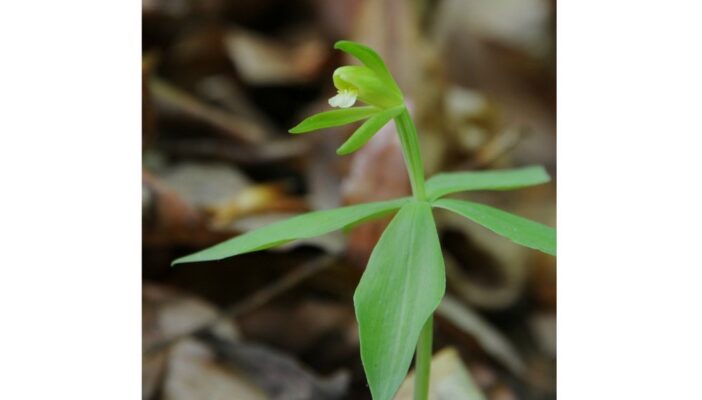Not a new story but knew to me and maybe you, as well as something with which we are all familiar. Last summer a rare, thought extinct (in Vermont) orchid was discovered, and no one blamed climate change.
Whenever something is diminished or goes away, the first order of business is to feed the climate cult narrative. You did this, you awful person. It’s your fault we must launder your tax dollars through our friends and family networks to fix it where “fix” means more taxes, bigger bureaucracy, higher prices, and less freedom.
I just got a sort-of Papa John’s vibe there. More taxes, Less Freedom – Democrat Party.
Anyway, last summer,
Botanists with the Vermont Fish and Wildlife Department said two local scientists alerted them to a population of small whorled pogonia, which was considered extinct in Vermont since 1902 and listed as threatened under the Federal Endangered Species Act.
They have done their due diligence to protect the clutch or rare things and plot a path to secure its re-emergence. But where did they come from? Johnny small-whorled-pogonia-seed isn’t responsible, so how did they find their way back? They never left.
The Smithsonian did some actual research and discovered,
Orchids can hide. Members of this diverse family of plants, known for their wildly attractive flowers, have long been recognized for their ability to enter extended periods of dormancy—sometimes for a year or longer. The plants take refuge underground, and with no leaves and no need for photosynthesis, the orchids rely on fungi for the nutrients they need to survive. …
[The whorled pogonia] is an extremely rare orchid and as rare as it is, it’s not as rare as we thought because it spends a lot of time hiding out underground,” says Smithsonian ecologist Melissa McCormick, one of the authors of the paper. “We had done some previous research into orchid mycorrhizal fungi. . . we were interested in whether the abundance of fungi in the soil was affecting not just where they are, but also when they emerge.”
The orchid has been hiding for 121 years or, more likely, sparsely present and unnoticed at varying times across that span. In other words, if anyone said your comfortable western lifestyle was to blame for this missing American orchid, they weren’t correct. It was the absence of the correct fungus because of your comfortable western lifestyle. I’m sure that’s coming, so be prepared.
Nothing is ever natural because there is no fiscal or political upside for progressives or the government they worship.
HT | Boston.com
